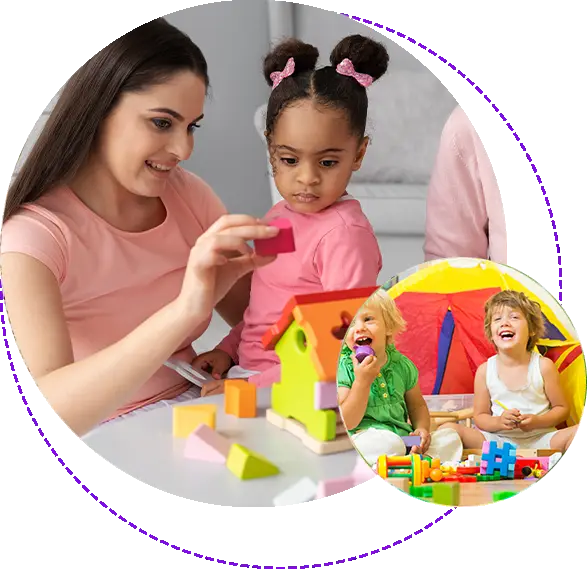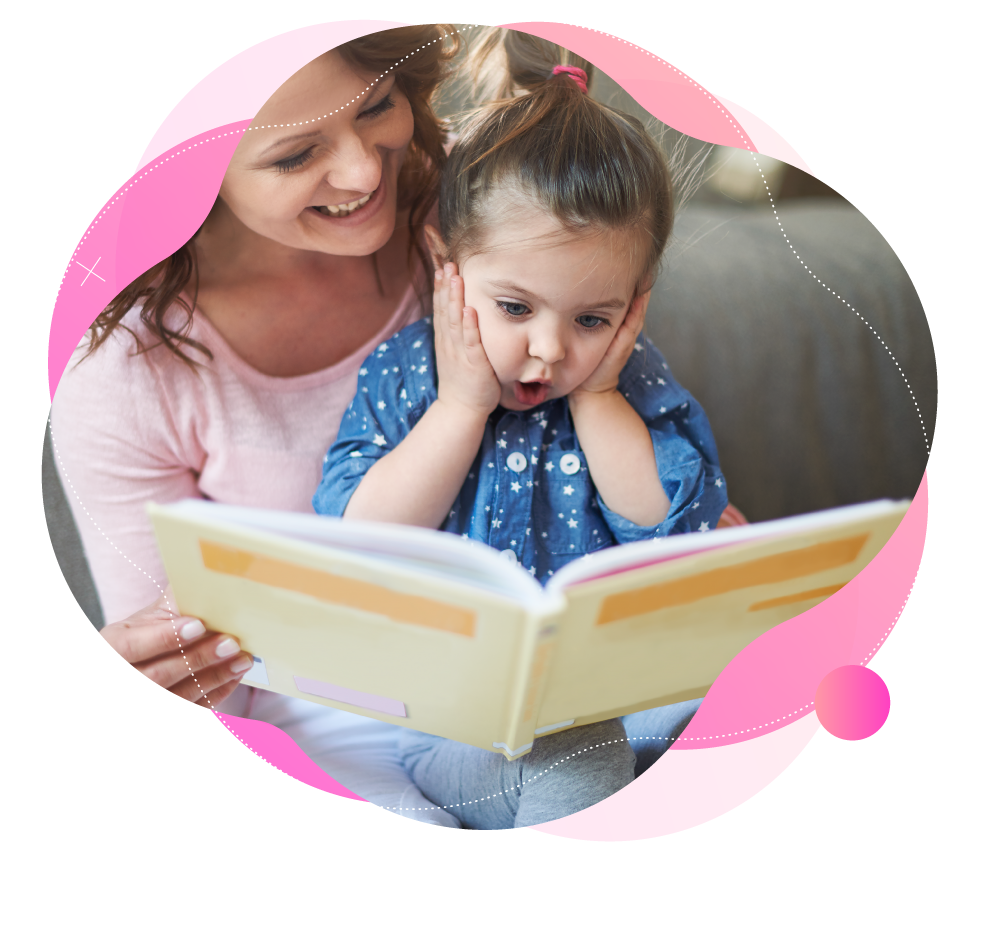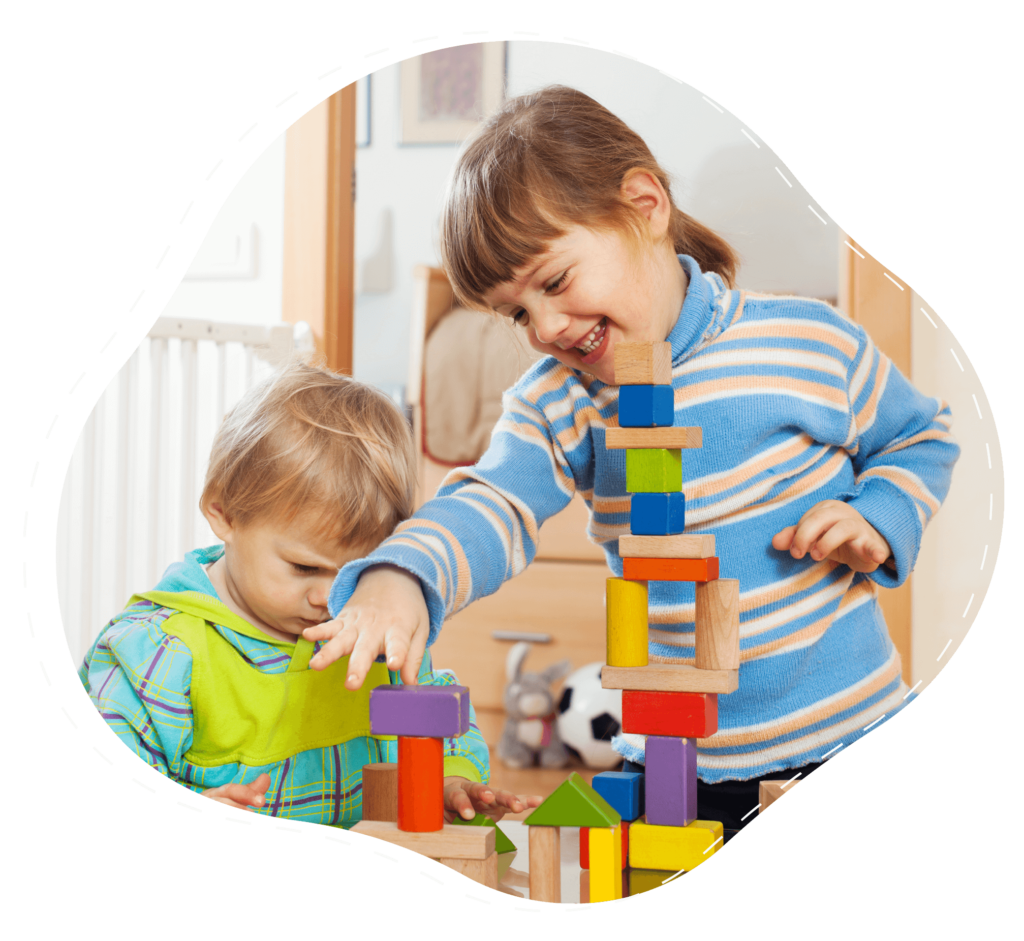Primary Program
Age Group: 3 Years – 6 Years
1:11 Teacher-Student Ratio

The primary goal of this program is to develop academic and social-emotional competency in the ward through different activities and a perfect curriculum. As part of this program, children are also involved in group activities like cultural studies, cooking, gardening, and outdoor playtime.
Our Preschool/Pre-kindergarten Program
- Develops self-regulation, task persistence, and functional independence
- Promotes social development through clear and respectful communication
- Consists of a wide range of materials for the child’s sensory perception
- Includes activities that encourage him to develop his mathematical and linguistic skills
- Encourages his imaginative exploration to find his best potential
We have a nap and non-nap time in our daily schedule, depending on the child’s needs.
OUR CURRICULUM
PRACTICAL LIFE
Practical life activities encourage the child to develop concentration, independence, coordination, self-awareness, self-control, and confidence. Children learn movement control, grace, and courtesy.
SENSORIAL
Sensorial activities help the kids to refine all their senses, including sight, smell, taste, touch, and sound. It also helps with fine motor skills. The materials include cylinder blocks, brown stairs, and constructive triangles.
LANGUAGE
Language activities are based on phonetic awareness. The child works through a set of hands-on and tactile language materials such as moveable alphabet, sandpaper letters and more. It helps the child to learn writing and reading
MATHEMATICS
Mathematics activities involve concrete learning materials like sandpaper numbers, number boards, number rods, spindle boxes, and more. They help the child to learn addition, subtraction, multiplication, fractions, and place value
CULTURAL SCIENCE
Cultural activities encourage the child to explore the natural world. It encompasses
Geography, Zoology, Botany, History, Art and Science. The materials include globes, flags, and maps from different culture

WHY MONTESSORI?
The Montessori approach believes teaching should involve activities that make learning fun and interesting. The classrooms and curriculum in a Montessori school are customized to assist the students to develop their imaginary, creative, thinking, and social skills.

